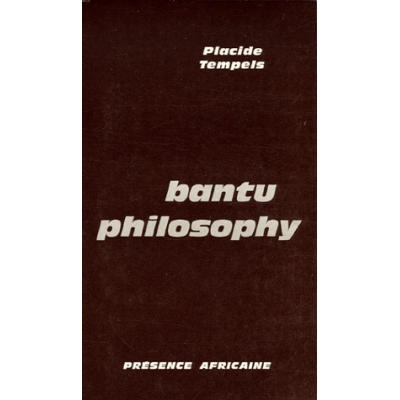- Rupture de stock


This book, the first to be published by Editions Présence Africaine, not so very long ago constituted an event for all those who interested themselves, for whatever reason, in the African world. Father Tempels indeed reveals the existence of a Bantu ontology and ethics -

Livraison partout dans le monde

Port offert en Europe à partir de 30€

Retrait gratuit à Paris

Paiement sécurisé
This book, the first to be published by Editions Présence Africaine, not so very long ago constituted an event for all those who interested themselves, for whatever reason, in the African world. Father Tempels indeed reveals the existence of a Bantu ontology and ethics - i.e. an organized and hierarchized system of the world. Man and God, Life and Death, Good and Evil, the Individual and Society are speculated upon in their reciprocal relationships. Father Tempels's enterprise has not failed to give rise to many comments and criticisms emanating, moreover, from the most diverse horizons. None the less, it is true to say that this work marks an important moment in Africanist studies by the sympathetic and serious way in which the author tackles spirituality in African culture.
Le père Tempels est né à Berlaar (Province d'Anvers, Belgique), le 18 février 1906, de parents limbourgeois. Au baptème, il reçut le nom de Frans. Après ses études secondaires, il entra au noviciat de l'Ordre des Frères Mineurs Franciscains à Thielt, le 17 septembre 1924, où il prend le nom de Placide. Ordonné prêtre le 15 août 1930, il se prépare à la vie missionnaire et il part à l'ex-Congo Belge (actuellement République démocratique deu Congo), le 3 novembre 1933. Il arrive à Dilolo, le 22 novembre de la même année. Dès son arrivée dans la région du lac Moïro, il est à l'écoute du peuple et au jour le jour il enregistre des devinettes d'enfants, des proverbes et des chansons populaires, notamment à Luabo, Lukonzolwa et Lumbu, au diocèse de Kamina
Après dix ans de travail missionnaire en brousse, après bien de recherches, d'essais et de désespoirs, il trouve sa voie, en s'intéressant directement à l'homme même.
Le but de Tempels était de se sentir "bantu" au moins une fois. ll voulait penser, sentir, vivre comme lui, avoir une âme bantu. Une fois parvenu à voir et sentir la vie comme lui, il reprendrait la personnalité européenne, mais parlant un langage vraiment adapté et compréhensible.